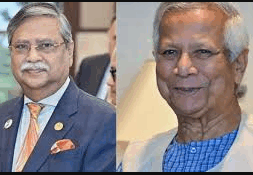
Roving Periscope: With the Taliban’s costly coal, the Pak economy cripples further
Virendra Pandit
New Delhi: Like Sri Lanka’s, the Pakistani economy is also coming to a grinding halt.
Even the Taliban militants—sponsored, trained, funded, and nursed by Pakistan since the 1980s—have turned a knife into Islamabad’s financial wounds: last week, Kabul tripled the price of coal, jeopardizing many Pakistani power plants.
As in Sri Lanka, Pakistan’s grim economy has percolated even to the children’s future.
Last week, Pakistan’s paper association, which has 18,000 member firms, said books would not be available to students in the new academic year starting August 2022 as the price of even indigenously manufactured low-quality paper has tripled, while the import of high-quality paper remains banned.
The media reported that the unprecedented paper crisis is part of the more significant national economic catastrophe, rising inflation, and a heavy tax levied on imported paper because of a monopoly on local paper industries.
For the first time, the Pakistani people are wary of China’s role in pushing their economy to the brink. China has hard bargained with Pakistan for the payback of loans and investments. In the fiscal year 2021-2022, Islamabad paid around USD 150 million towards interest to Beijing for using a USD 4.5 billion Chinese trade finance facility. In 2019-2020, it paid USD 120 million towards interest on USD 3 billion in loans.
“Not only has Pakistan’s economic crisis been mishandled by successive governments, but it has also taken extensive loans from China, Saudi Arabia, and Qatar. Besides, the country has endured 13 loans from the International Monetary Fund (IMF) over 30 years.
To rub salt in Pakistan’s economic wounds, even the Taliban hiked the price of coal Pakistan wanted to import to run thermal power plants. Last week, the Taliban regime increased the coal price from USD 90 per ton to USD 200 per MT, plus a 30 percent customs duty.
This happened hours after Pakistani Prime Minister Shehbaz Sharif approved ‘critical quality’ coal imports from Afghanistan in rupees to save on foreign exchange and wean off a reliance on South African coal.
While this was Sharif’s attempt to bring electricity to Pakistanis cheaply and quickly amid a domestic financial crisis and a challenging global market, the Islamic militia-run Afghanistan government suddenly increased the prices and set custom duties at 30 percent, the reports said.
“Earlier, the PM was informed that import of coal from Afghanistan, initially required only for Sahiwal and Hub power plants, would save more than USD 2.2 billion annually in the import bill,” the Express Tribune reported. Now that the Taliban has hiked the coal price, it will not happen.
Since it took over Afghanistan in August 2021, the Taliban government has been attempting to rely on natural resources for revenue to answer the country’s economic crisis after the US froze its liquid assets worth over USD 10 billion.
The Taliban also tries to shake off its image as Pakistan’s “puppet.”
Last week, the Afghanistan Ministry of Petroleum and Minerals spokesperson Mufti Ismatullah Burhan declared that no coal trade agreement exists between the two countries and that the Taliban will use coal as a “pressure point” for Pakistan.
“We sell the coal to local industrialists, and the same coal is exported to Pakistan by local industrialists…The need for Pakistan and their coal is not important to us, but our local traders are important to us, and we are providing relief to them. Local traders can send coal to any country they want, but we have imposed duties to export coal abroad,” Burhan said.
He also remarked that Pakistan’s economy is so dire that coal imported from Afghanistan would not improve it much.
Afghan expert Mirahmad Shakib said the actual damage of any sped-up coal export to Pakistan would be to the environment in Afghanistan. “Pakistan is plundering Afghanistan’s resources in the absence of a responsible national government,” Shakib said.
These developments came amid India reopening its embassy in Kabul on June 23 and sending a “technical team” to monitor and coordinate humanitarian work in Afghanistan closely.
In recent months, Pakistan created obstacles in making Indian help, including wheat and medicines, reach the war-torn country facing multiple crises, including food. This interference, even pilferage in Indian service, infuriated the Taliban, which used the Tahreek-e-Taliban Pakistan (TTK) terror outfit against the Pakistani armed forces.














